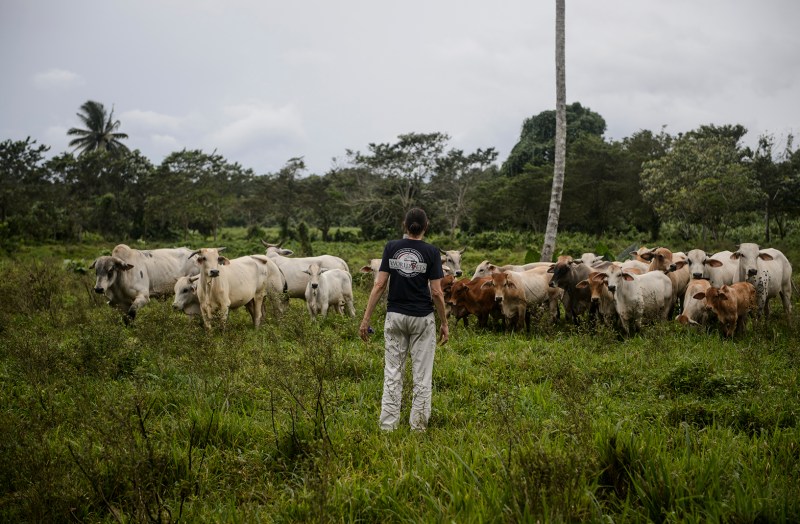Coming back from the summer, my Instagram feed has been filled with photos of my peers in developing countries, posing with smiling children draped across their arms along with a predictable caption along the lines of: “So thankful for this life-changing experience!” These pictures are posted with a very clear message: I travel while helping humanity in my time off. While I applaud charitable efforts, I can’t help but cringe a little bit at the gimmicky-ness of the whole situation and roll my eyes at these well-intentioned humanitarians who have deluded themselves into thinking they’ve truly helped the world in some way.
Voluntourism is the latest fad in which people – typically those who are young, wealthy and from first world nations – travel to a developing country, and then participate in acts of charity work for the duration of their trip. This service might involve visiting various facilities “in need of volunteer help” and helping with other forms of local community development.
The crux of the issue is that voluntourism is a for-profit scheme: Voluntourism is a multi-billion dollar industry. Companies offering volunteering experiences charge prospective customers anywhere from $1,000 – on the lower end – to a whopping $10,000 for a trip that lasts just a few weeks. Where does all this money go? A decent amount is spent on airfare, food and accommodation costs associated with travel abroad – but it’s hard to know how the rest is spent, given the lack of transparency involved in profit-oriented endeavors. Ultimately, most programs enabling voluntourism are designed solely for the benefit and experience of the consumer – that is, the volunteer – and not the locals being “serviced.” It is first and foremost a lucrative, hypocritical endeavor, hypocritical on both the industry and consumers’ parts in that their primary concerns are far from prioritizing humanitarian efforts like a non-profit that truly aims to help impoverished global communities, and are more directed towards the consumers’ experience.
Supporters of volunteering abroad often argue that volunteers are “making a positive difference” in the locals’ lives. This sentiment is too optimistic. Voluntourism produces several unintentional harms to impoverished communities. A revolving door of volunteers often displaces locals from working and being able to sustain their own livelihoods in the long-term. A family’s $10,000+ service trip could probably be better allocated towards financing a local endeavor that recruits local people. Furthermore, many of the short-term “projects” that unskilled volunteers take up – whether it be painting, building, or other similar tasks – are of shoddy quality; they sub-optimally waste precious resources, serving no one but themselves. Another common but misguided volunteering experience (often coordinated without completing background checks on participants) involves going to orphanages or schools and providing “care, affection and love” to destitute children, a phenomenon sometimes referred to as “AIDS Orphan Tourism.” However, studies have found that this form of volunteering produces negative psychological effects in young, vulnerable children, who develop many “short-term attachments.” They grow up accustomed to strangers walking in and out of their lives, ultimately abandoning them. All variations of voluntourism foster a dependence upon external help and generate negative, unintentional side effects. How advanced can a community truly become if it is the target of continuous charity?
The more realistic, consumer-focused argument in favor of voluntourism is that people from wealthier backgrounds who travel to impoverished communities abroad become more aware of global disparities. But it’s unclear what the result of such “awareness” actually is. Many come back from their experiences abroad believing that such service is the best way to meaningfully act on their awareness, and continue to do so in future years without real impact, fulfilling a self-perpetuating cycle.
Voluntourism may instead reinforce negative stereotypes regarding people in developing countries, especially when compounded by the existence of language barriers. Rather than really learning about local people’s abilities and empowering them, the short-natured “jump in, jump out” nature of voluntourism fortifies foreigners’ belief that people in developing countries are unable to support themselves and need outside help. After all, companies offering volunteer abroad opportunities advertise that, “Just one week of your time changes their lives!” This volunteering mindset – whereby people from wealthier nations think they can just jump into a foreign land without knowing the language or dynamics of a local community, and “fix” regional problems – is a modern-day reincarnation of the White Man’s Burden. How much help can you, as an unskilled foreigner, really provide to the local community? The superficial nature of voluntourism fosters a sense of pity towards impoverished people, inflates an underlying notion of first-world superiority, and does not actually do anything meaningful to empower locals in the long-term.
To some extent, all volunteering is self-oriented: Volunteers want to feel good about themselves. But next time you consider going abroad to do it, be real with yourself about why you’re going. If you’re in it primarily to travel “but also do good,” just travel. Your contributions to the local economy through cultural exchange will be better in the long term for their economic sustainability. If you actually want to volunteer, consider the importance of being local. The funds spent on your trip just in accommodation and airfare alone can be better allocated by donating that money to an already on-ground organization, with skilled volunteers who can actually empower locals. Spend your time instead volunteering somewhere close to you where you won’t face high travel costs, so your funds are being optimally allocated. If you are still set on volunteering abroad, ask yourself whether you’re going for a long enough period of time such that you can receive training, develop meaningful connections with locals and actually have a long-term impact. A few days or weeks probably won’t do anyone much good. If you really want to have an impact, do you really need to “voluntour”?
Contact Sejal Jhawer at ejalj ‘at’ stanford.edu.
